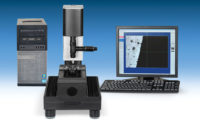The National Institute of Standards and Technology (NIST) has posted a three-year plan outlining the topics of possible future competitions for R&D funding under the agency’sTechnology Innovation Program (TIP). The research funding roadmap, which looks three years past the current fiscal year, proposes a range of TIP competitions in the fields of civil infrastructure, manufacturing, energy, health care, water resources, complex networks and sustainability.
“We are posting the TIP three-year plan to keep our user community-industrial and academic research groups in this case-informed of our current plans for future R&D funding competitions,” says NIST Director Patrick Gallagher. “But I want to stress that these are not engraved in stone. If you have better ideas, we’d like to hear from you.”
TIP was created to foster novel technologies to meet the nation's critical needs, and supports President Obama's commitment to winning the future by out-innovating, out-educating and out-building our global competition. Just this week, the White House launched the Startup America initiative with a focus on innovation and a plan to encourage private sector investment in job-creating startups, accelerate breakthrough research and address barriers to success for entrepreneurs.
The program provides cost-shared funding, on a competitive basis, for high-risk technology R&D that offers solutions to specific critical national needs identified by TIP. Program officials emphasize that the three-year plan is not a formal solicitation for proposals. There are no current TIP competitions.
TIP funds cost-shared R&D projects by single small-sized or medium-sized businesses or by joint ventures that also may include institutions of higher education, nonprofit research organizations and national laboratories. TIP awards are limited to no more than $3 million total over three years for a single company project and no more than $9 million total over five years for a joint venture.
Proposed TIP competition topics through FY 2014, according to the plan, would include advanced sensing technologies and advanced repair materials for civil infrastructure; advanced materials, biomanufacturing and manufacturing processes and robotics and intelligent automation for manufacturing; technologies to enable a smart grid; technologies for personalized medicine; technologies for water availability; complex networks; and sustainability.
Get our new eMagazine delivered to your inbox every month.
Stay in the know with Quality’s comprehensive coverage of the manufacturing and metrology industries.
SIGN UP TODAY!Copyright ©2024. All Rights Reserved BNP Media.
Design, CMS, Hosting & Web Development :: ePublishing


